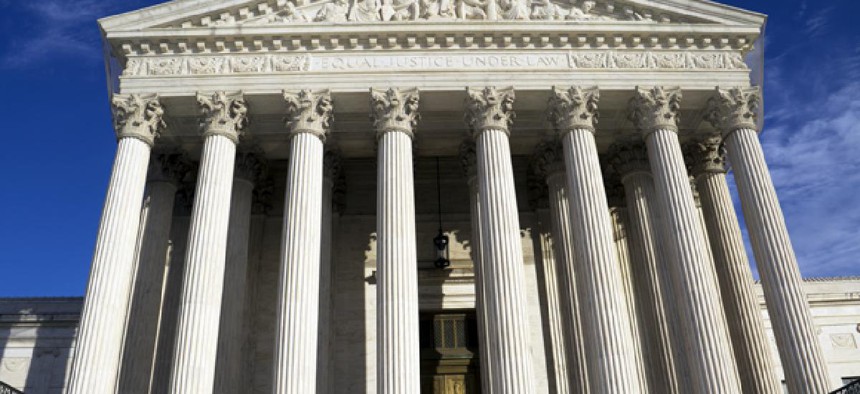
Mesut Dogan/Shutterstock.com
The Government Can't Be Sued for Secret Spying It Keeps Secret
The Supreme Court declined to hear a lawsuit from privacy groups about the matter.
A fresh bit of Kafka from the Supreme Court today: Since you can never be sure if the government is secretly spying on you, you can never sue the government for spying on you. And because unless you were actually spied upon by the government, you cannot sue to keep other citizens from being spied on by the government. And you can't know if you were spied on by the government because the government doesn't have to tell you if it spied on your communication.
This legal Möbius strip began in 2008, when Congress expanded the 1978 Foreign Intelligence Surveillance Act codifying the government's ability to initiate a wiretap on a foreign national suspected of involvement of terrorism. It was a bit belated; three years prior, the New York Times revealed that the Feds were already doing this. Since the surveillance occurred without a public warrant, privacy groups like the ACLU and Amnesty International sued to stop the practice, fearing that U.S. citizens, protected under the Fourth Amendment from unreasonable search and seizure, would also be caught in the government's system. This morning, in a 5-4 vote led by its conservative members, the Court declined to hear that lawsuit.
Read more at The Atlantic Wire.
(Image via Mesut Dogan/Shutterstock.com)







